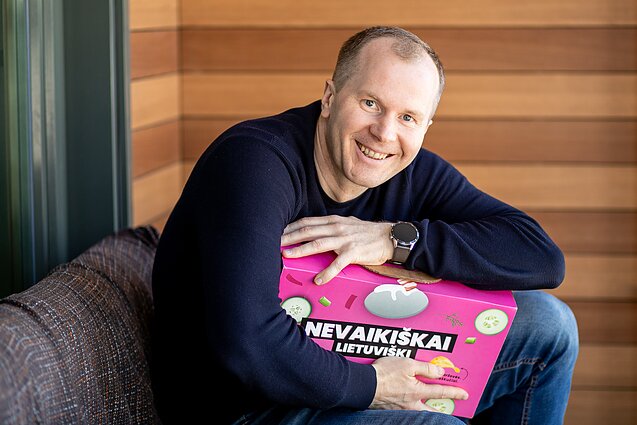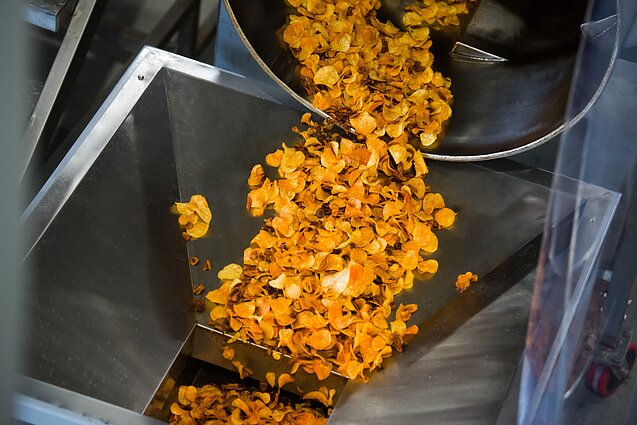
Lithuanians are a nation of potato fans, says Žilvinas Kulvinskis, one of the founders of the Lithuanian potato-chip (crisps) producer Chazz. According to the latest news from LRT.lt, Lithuanian-made chips in the flavours of šaltibarščiai (cold beetroot soup) and cepelinai (potato dumplings or “zeps”) have won over the hearts of Lithuanians and foreigners alike.
Kulvinskis quit his stable job a few months ago to fully concentrate on the chip business. He had been developing the idea for five years. The idea for making chips came gradually when Kulvinskis saw that there were no organic potato chips or other vegetable chips in Lithuania. The only company that used to produce crisps in Lithuania moved to Poland. The team decided to open a crisp factory in Trakai, near Vilnius, and make a uniquely Lithuanian product from vegetables grown by local farmers.
 Visitors to the factory are often surprised to see a modern chip production line, Kulvinskis says. They are relatively small, more of a craft producer. Finding workers was not a big challenge, he says, as young people are eager to work, especially in the office. “We have a lot of young people working for us, we give them a lot of freedom to create and do things, which motivates them a lot, and it also allows our communication to remain sharper and more youthful,” he says.
Visitors to the factory are often surprised to see a modern chip production line, Kulvinskis says. They are relatively small, more of a craft producer. Finding workers was not a big challenge, he says, as young people are eager to work, especially in the office. “We have a lot of young people working for us, we give them a lot of freedom to create and do things, which motivates them a lot, and it also allows our communication to remain sharper and more youthful,” he says.
Since 2019, Lithuanian crisps have been sent to 23 countries around the world, including Greece, Israel, the United Arab Emirates and Malta. Just as the Lithuanian business was taking off, the global coronavirus pandemic hit. It could have been disastrous, but they found a way into the hearts of Lithuanians and decided to start e-commerce, which enjoyed great success after hitting social media.
The team decided to pay tribute to traditional Lithuanian delicacies and began to make crisps that taste like “cepelinai” and “šaltibarščiai”. Six months later, Lithuanian communities all over the world started writing abouttasting Lithuanian crisps during the Ethnic Flavours of the World Days. They are a “taste of nostalgia” for compatriots living abroad, said Kulvinskis.
“At the beginning of the year, at the world’s largest snack exhibition in Cologne, we heard compliments from foreign producers that Lithuanians in general are very innovative producers, are constantly looking for new flavours, have a fresh approach to the production market and delight with quality. There were also many people taking photos of our stand, including the producers of the famous Swiss chocolate.”
Although potatoes are a near-sacred vegetable for Lithuanians, they are not as avid crisp eaters as, for example, the British, according to Kulvinskis. Local eating habits are similar to those of the Americans.
After three years of production, Kulvinskis hopes to call this a successful business in another year.



























